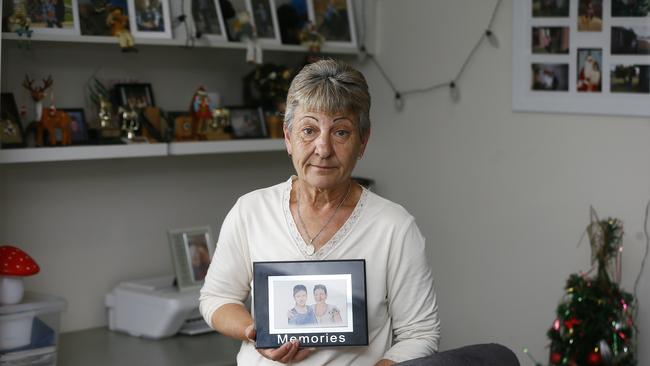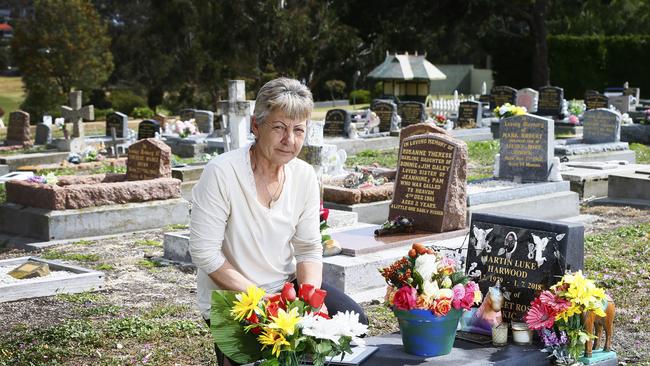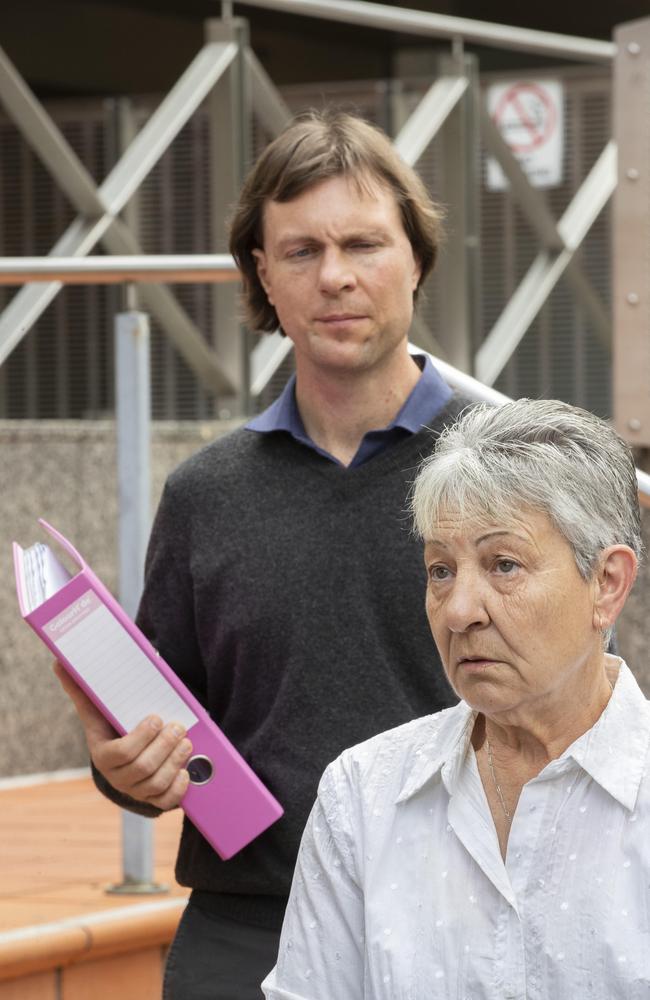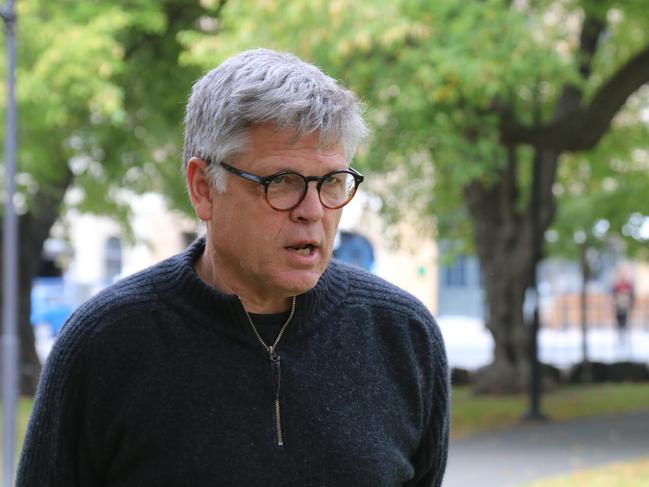Rosemary Harwood makes fresh call for coronial inquiry into daughter’s death
A grieving Tasmanian mother says Risdon Prison did not follow its own transgender policy, as she seeks a fresh bid for an inquest into her daughter’s death.

Tasmania
Don't miss out on the headlines from Tasmania. Followed categories will be added to My News.
A grieving Tasmanian mother has launched a fresh bid for a coronial inquest into her daughter’s death, saying new evidence revealed the Tasmania Prison Service had not followed its own transgender inmate policy during her daughter’s incarceration.
In October last year, Rosemary Harwood called for the coroner to investigate the death of her daughter Marjorie, who passed away aged 38 in 2018, having refused medical treatment for a kidney condition.

At the time, Rosemary’s lawyers said prison records showed Risdon authorities were aware of Marjorie’s status as a transgender woman, but still housed her in the men’s facility.
Rosemary said that Marjorie alleged to have been verbally abused, assaulted, and gang raped during her time in prison.
On Tuesday, Rosemary returned to the steps of the Magistrates Court in Hobart, where her legal team announced a new letter had been written to Coroner Olivia McTaggart detailing fresh facts obtained under Right to Information laws.
Human rights lawyer Ben Bartl said there was now proof the Department of Justice had an official Transgender Prisoner policy in place since 2009, that stipulated inmates “will be managed by the gender with which they identify” and must be assessed “to ensure that they are accommodated appropriately”.
Rosemary said closure over her daughter’s death could only come through answers provided by a formal inquest process.
“I’m angry that Risdon Prison had a transgender policy, but did not follow it,” Rosemary said.
“Why wasn’t Marjorie asked if she was transgender when she went into prison.
“Risdon Prison’s transgender policy is not worth the paper it’s written on if it isn’t followed.
“What guarantee do we have that the policy is now implemented.”

Prisoners Legal Service chair Greg Barns SC said it was critically important that prison policies relating to human rights were fully implemented.
Mr Barns said he was appalled that a policy that existed during Marjorie’s multiple stints in prison had not been put into practice.
“The leadership at the prison needs to ensure that it’s a human rights-focus prison, and that means when you adopt policies, that every member of staff understands that those policies have to be implemented at all times,” Mr Barns said.

“I must say that there has been some improvement in the way the prison leadership has dealt with human rights issues, but in this case … there is no excuse for not implementing – and making prisoners aware – that the policy exists.
“Inquests into the prison system can have a very positive impact on improving the way prisons operate, and in keeping people safe.”
A spokesperson for the Department of Justice said that while the Tasmania Prison Service did not comment on individual matters,
Upon entry into custody, prisoners are able to self-identify as transgender, transsexual or intersex through various intake interviews and assessments.
The TPS first implemented a transgender and gender diverse prisoner policy in 2009, which was replaced with an updated policy in 2017.
“Upon entry into custody, prisoners are able to self-identify as transgender, transsexual or intersex through various intake interviews and assessments,” the spokesperson said.
The spokesperson said the department was currently working with community and key stakeholders on the development of a revised policy, which would likely be issued later this year.
“The Department of Justice also has an LGBTIQA+ action plan which was launched in 2021.
“This was developed in consultation with community and LGBTIQA+ employees and is being considered as part of the policy review.”




